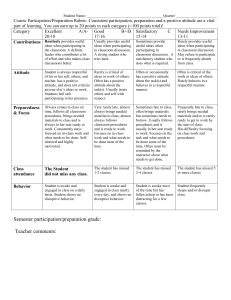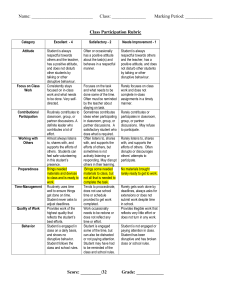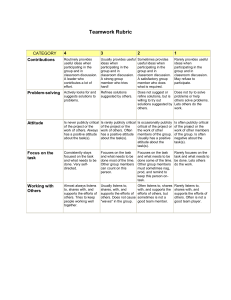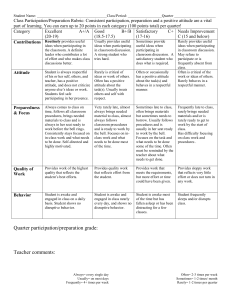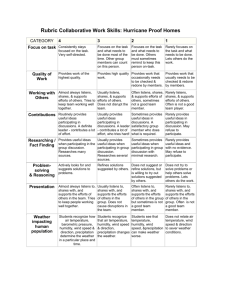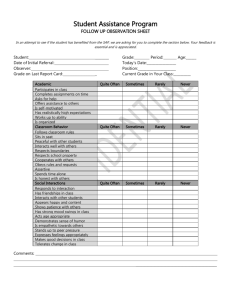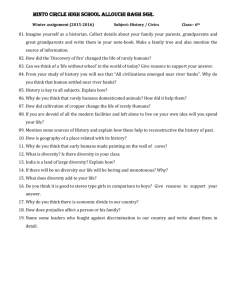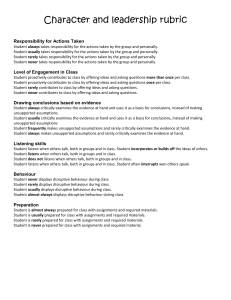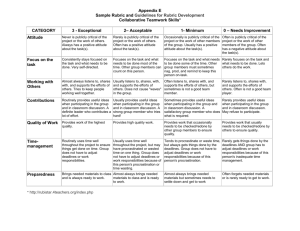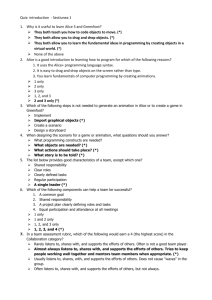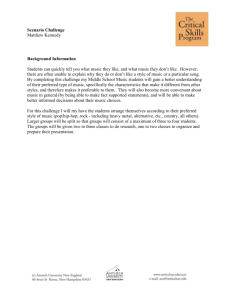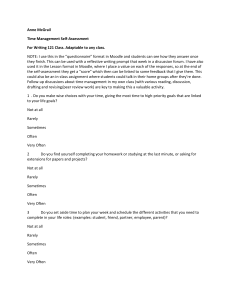Class Participation Rubric - English Class
advertisement
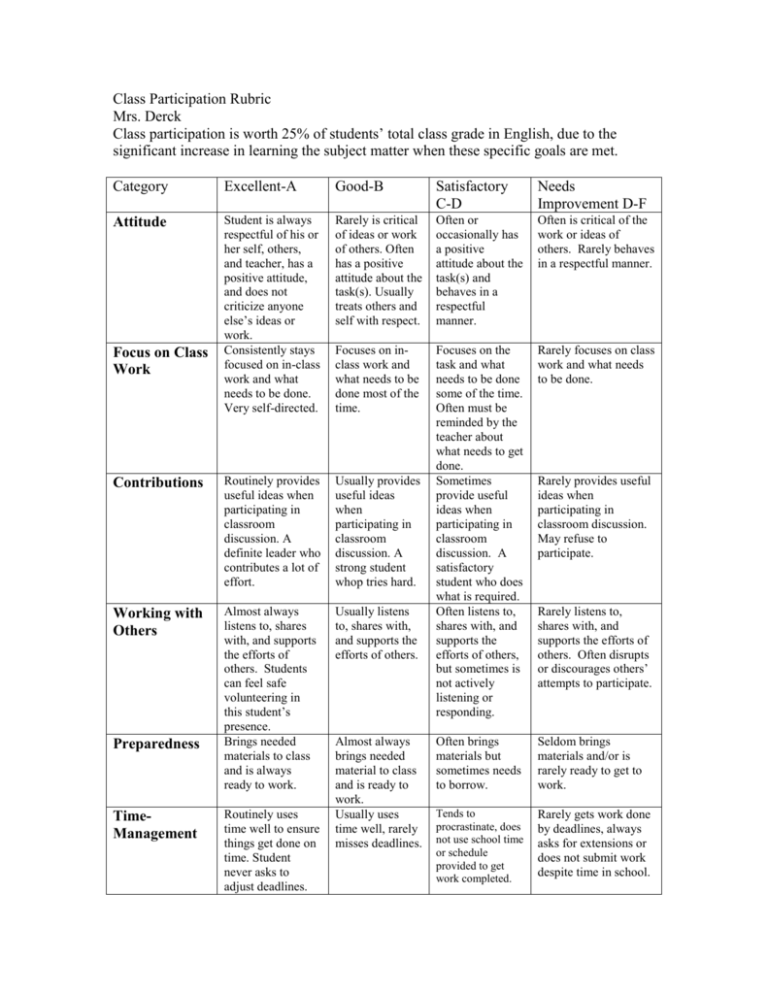
Class Participation Rubric Mrs. Derck Class participation is worth 25% of students’ total class grade in English, due to the significant increase in learning the subject matter when these specific goals are met. Category Excellent-A Good-B Satisfactory C-D Needs Improvement D-F Attitude Student is always respectful of his or her self, others, and teacher, has a positive attitude, and does not criticize anyone else’s ideas or work. Consistently stays focused on in-class work and what needs to be done. Very self-directed. Rarely is critical of ideas or work of others. Often has a positive attitude about the task(s). Usually treats others and self with respect. Often or occasionally has a positive attitude about the task(s) and behaves in a respectful manner. Often is critical of the work or ideas of others. Rarely behaves in a respectful manner. Focuses on inclass work and what needs to be done most of the time. Rarely focuses on class work and what needs to be done. Contributions Routinely provides useful ideas when participating in classroom discussion. A definite leader who contributes a lot of effort. Usually provides useful ideas when participating in classroom discussion. A strong student whop tries hard. Working with Others Almost always listens to, shares with, and supports the efforts of others. Students can feel safe volunteering in this student’s presence. Brings needed materials to class and is always ready to work. Usually listens to, shares with, and supports the efforts of others. Focuses on the task and what needs to be done some of the time. Often must be reminded by the teacher about what needs to get done. Sometimes provide useful ideas when participating in classroom discussion. A satisfactory student who does what is required. Often listens to, shares with, and supports the efforts of others, but sometimes is not actively listening or responding. Often brings materials but sometimes needs to borrow. Seldom brings materials and/or is rarely ready to get to work. Tends to procrastinate, does not use school time or schedule provided to get work completed. Rarely gets work done by deadlines, always asks for extensions or does not submit work despite time in school. Focus on Class Work Preparedness TimeManagement Routinely uses time well to ensure things get done on time. Student never asks to adjust deadlines. Almost always brings needed material to class and is ready to work. Usually uses time well, rarely misses deadlines. Rarely provides useful ideas when participating in classroom discussion. May refuse to participate. Rarely listens to, shares with, and supports the efforts of others. Often disrupts or discourages others’ attempts to participate. Quality of Work Provides work of the highest quality that reflects the student’s best efforts. Provides quality work that reflects an effort from the student. Handbook Student is aware of and follows all rules in the student handbook, such as plagiarism, food, drink, tardies, etc. Student seems to nearly always know and follow rules as outlined in the student handbook. Behavior Student is awake and engaged in class on a daily basis, and shows no disruptive behavior. Student is awake and engaged in class nearly every day, and shows no disruptive behavior. Work occasionally needs to be redone or does not reflect any time or effort. Student has broken a few rules during this marking period or has made no effort to make him or her self aware of the rules. Student is awake most of the time but has fallen asleep or done nothing for a few classes. Show no disruptive behavior. Provides illegible work that reflects very little effort or does not turn in any work. Student does not follow rules as explained in student handbook. Student frequently sleeps and/or disrupts class. The following Pennsylvania Standards for Speaking and Listening are regulated and must be taught in Pennsylvania: 11. 1.6. Speaking and Listening A. Listen to others. Ask clarifying questions. Synthesize information, ideas and opinions to determine relevancy. Take notes. B. Contribute to discussions. Ask relevant, clarifying questions. Respond with relevant information or opinions to questions asked. Listen to and acknowledge the contributions of others. Adjust tone and involvement to encourage equitable participation. Facilitate total group participation. Introduce relevant, facilitating information, ideas and opinions to enrich the discussion. Paraphrase and summarize as needed. C. Participate in small and large group discussions and presentations.
